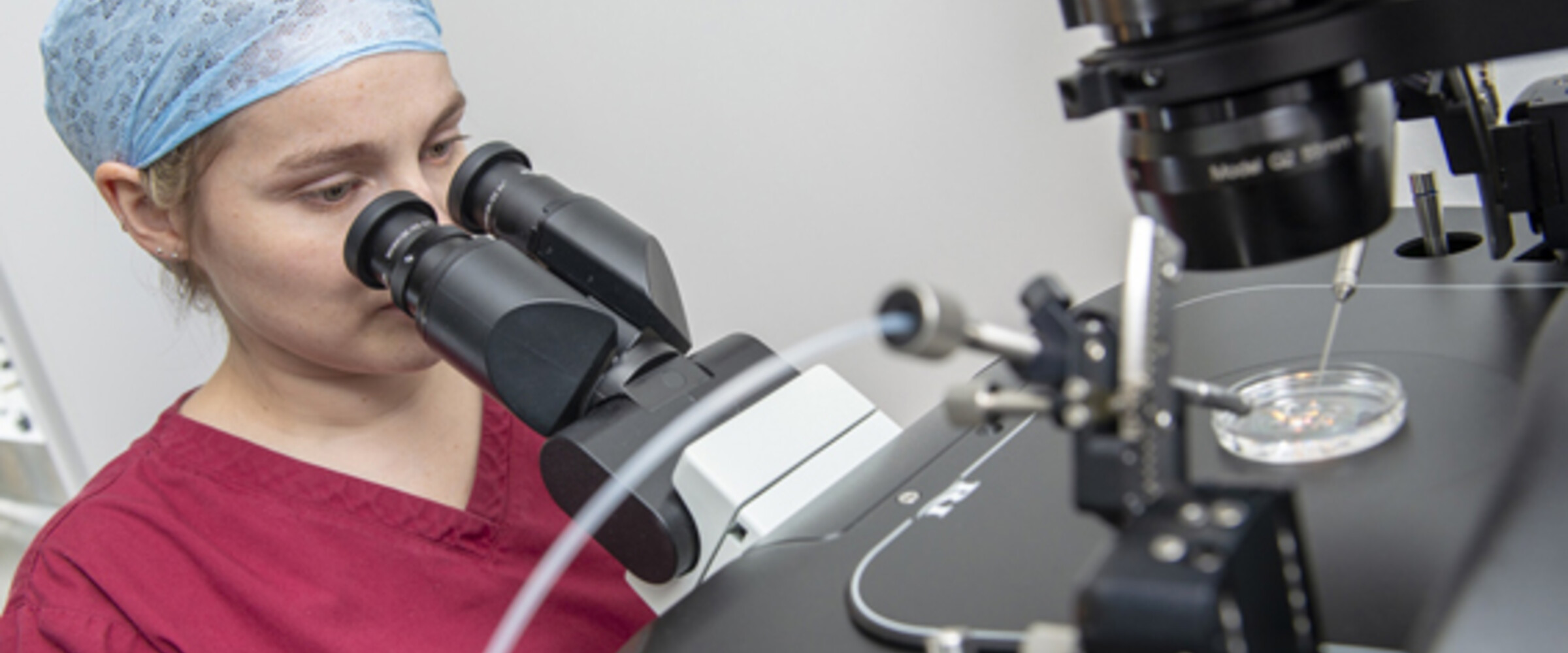
People want to know about their fertility - National survey reveals a need for better understanding of reproductive health and what leads to a successful conception


At the start of every new year, thousands of individuals and couples put “start a family” on their to-do list but a recent national survey has revealed why many want a fertility MOT and need help to increase their knowledge of the reproductive process to improve their chances of successfully creating a family of their own.
The survey was conducted on behalf of Complete Fertility by OnePoll in December 2023. It asked 2000 respondents, aged 20 to 40 years, questions about their knowledge of essential aspects of fertility.
Key findings:
More men than women are interested in a fertility MOT/check-up
- 43% of respondents said they would be interested in a fertility check-up and interestingly, more men than women were interested (50% men vs. 37% of women).
- 51% of respondents aged 25 – 29 years responded yes to considering a fertility check-up.
- 28% of non-binary or alternative identity would consider a fertility check-up.
Ms Polly Ford, Consultant Gynaecology and Subspecialist in Reproductive Medicine and Surgery explains:
“We think its important people pause, check their fertility and know where they are. This impacts them now as well as in the future. These investigations can help optimise an individual or couples’ chance of starting a family by having the knowledge and potentially the time to address any conditions before it is too late. If you have concerns it is important to be heard by a fertility specialist and taken through the tests and scans.
“Fertility issues related to men contribute up to 50% of infertility in a heterosexual and same sex couples, hence it is important doctors and couples pay specific attention to these issues. Our fertility MOTs are designed to fully address these areas. We do not send tests in the post, we are a team of experts with specific knowledge in a clinic, with our own on-site state-of-the-art laboratory and the best team to care for you.”
What people know about the reproduction
- 95% of respondents did not know how long it takes for the body to regenerate new sperm.
- 4% of respondents knew the correct answer - three to four months.
- 72% of respondents did not know or were unsure where the sperm meets the egg for a successful conception (the fallopian tubes).
- 28% knew the correct answer.
- 32% thought it was the ovaries.
- 25% answered the uterus.
- 56% of respondents did not know or were unsure of the correct time it takes sperm to meet the egg.
- 21% of respondents thought it takes seconds.
- 44% of respondents answered correctly – it takes minutes to hours.
- 18% thought it took days.
Age and the fertility – a need to improve knowledge on the impact of age on fertility .
78% of respondents did not know a heterosexual couple who are both over 35 years old, have less than a 30% chance of a successful pregnancy if they have sexual intercourse on their most fertile day.
- Only 18% of respondents knew this fact.
Professor Ying Cheong, Medical Director of Complete Fertility explains:
“The survey results are not surprising. There is a myth around the ability to have a child late in life. A substantial number of respondents underestimated the decline in fertility with age, highlighting the importance of earlier engagement in expert fertility opinion. Infertility related to age is not reversible and it is only with the right knowledge can people be proactive and not leave things too late; this is especially important as we now have techniques to preserve fertility e.g. egg freezing.
“We offer our patients reliable, trustworthy, clinically proven and research-led solutions. One size does not fit all, and our multidisciplinary team of fertility experts constantly review every patient, every step of the way to see what can be done.”
Patient story – “We never thought we would ever see a positive pregnancy test.”
Emma and James Morris live in Havant. They have two beautiful girls following successful fertility treatment at Complete Fertility, but it was not a straightforward situation for either of them.
Emma explains:
“James thought, from early an early age, he wouldn’t be able to have children and was diagnosed with azoospermia (a blockage in the reproductive tract). He had undergone various tests and believed having a family would be impossible for him. Amazingly this all changed when he met the urologist at Complete Fertility who suggested surgical sperm retrieval which he underwent very successfully in 2019.
“I was diagnosed with polycystic ovary syndrome (PCOS) and was referred to Complete Fertility to start fertility treatment. It was a roller-coaster; when we started stimulation to collect my eggs we didn’t think there would be many but in fact, we were lucky enough to collect 12. Seven were mature and four we were able to fertilise. From those four, two survived and one was transferred, and nine months later Rosa was born.
“The remaining embryo was frozen, and we thought that may be it for us but were over the moon when Hallie was born last August.
“We never thought we would ever see a positive pregnancy test. We had both come to terms with it, but it was incredibly hard on us and people expect you to start a family once married. So many people faced with infertility hide away because they are embarrassed or worse still ashamed. That is why we are keen to share our story and hope it helps others.”
1 in 6
According to the World Health Organisation, 1 in 6 of the adult population experiences infertility showing the urgent need to increase access to affordable, high-quality fertility care for those in need.
Complete Fertility is a part of Virtus Health and is based in Chandlers Ford, Hampshire. The team of experts treat NHS patients from Dorset, Sussex, the Isle of Wight and Hampshire. They also treat private patients from across the across the UK but predominantly in the South of England.
The survey
The survey was carried out by OnePoll 12 Dec 2023 – 21 Dec 2023. There were 2,000 respondents made of UK adults aged 20-40 years old.

